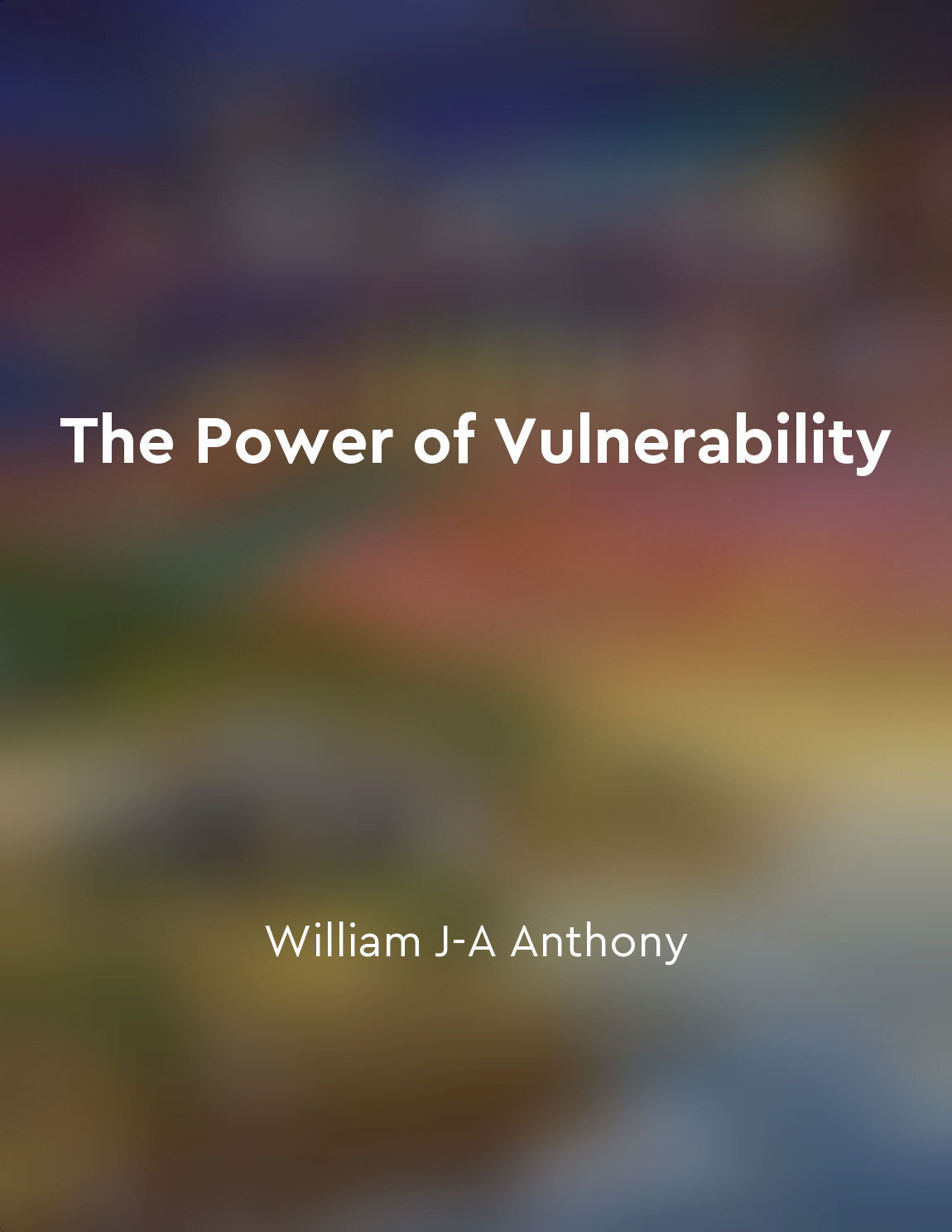Cultivating vulnerability requires selfcompassion from "summary" of The Power of Vulnerability by William J-A Anthony
To truly cultivate vulnerability, one must first develop self-compassion. This concept may seem counterintuitive at first - vulnerability is often associated with weakness, while self-compassion is seen as a form of self-care or self-love. However, the reality is that in order to open oneself up to vulnerability, one must first be able to treat oneself with kindness and understanding. Self-compassion is the practice of treating oneself with the same care and compassion that one would offer to a close friend in times of need. It involves acknowledging one's own humanity, including flaws and imperfections, without judgment or self-criticism. This sense of self-acceptance is crucial for cultivating vulnerability, as it allows individuals to feel safe enough to let their guard down and truly be themselves. When we lack self-compassion, we are more likely to be hard on ourselves, criticize our own actions, and hold ourselves to unrealistic standards. This negative self-talk can create a barrier to vulnerability, as we may fear being judged or rejected for showing our true selves. By practicing self-compassion, we can break down these barriers and create a space where vulnerability can flourish.- Self-compassion provides the foundation for vulnerability by creating a sense of safety and acceptance within oneself. When we are able to treat ourselves with kindness and understanding, we are better equipped to take risks, share our true thoughts and feelings, and connect with others on a deeper level. This is why cultivating vulnerability requires self-compassion - without it, we are unable to truly open ourselves up to the world around us.
Similar Posts
Embrace the wild, untamed spirit within you
There is a wild, untamed spirit within each of us, a part of ourselves that yearns to break free from the constraints of societ...
Accepting compliments graciously boosts selfesteem
When someone offers us a compliment, it is essential to receive it graciously. By acknowledging and accepting the kind words fr...
Reflecting on setbacks promotes learning
When we encounter setbacks, our natural inclination may be to avoid thinking about them. We may feel embarrassed, disappointed,...
Embrace your uniqueness and individuality
Embracing your uniqueness and individuality is a crucial aspect of developing healthy self-esteem. In a world that often encour...
Make your habits enjoyable and rewarding
As you think about creating new habits in your life, remember that the key to making them stick is to make them enjoyable and r...
Emotions are at the core of our human experience
Emotions are not just a part of our human experience; they are at the very core of it. They shape the way we think, act, and re...
Keep a positive outlook
Maintaining a positive outlook is essential if you want to make significant progress toward your goals. Negativity has a way of...
Practice mindfulness in everyday activities
Engaging in the practice of mindfulness involves being fully present in each moment, without judgment or distraction. It is abo...
Don't judge yourself
The concept of not judging ourselves is a critical part of our spiritual journey. When we constantly evaluate and criticize our...
Embrace gratitude for all aspects of your life
Gratitude is a powerful tool that can transform your life. When you embrace gratitude for all aspects of your life, you are abl...


